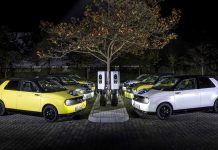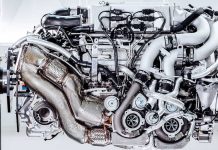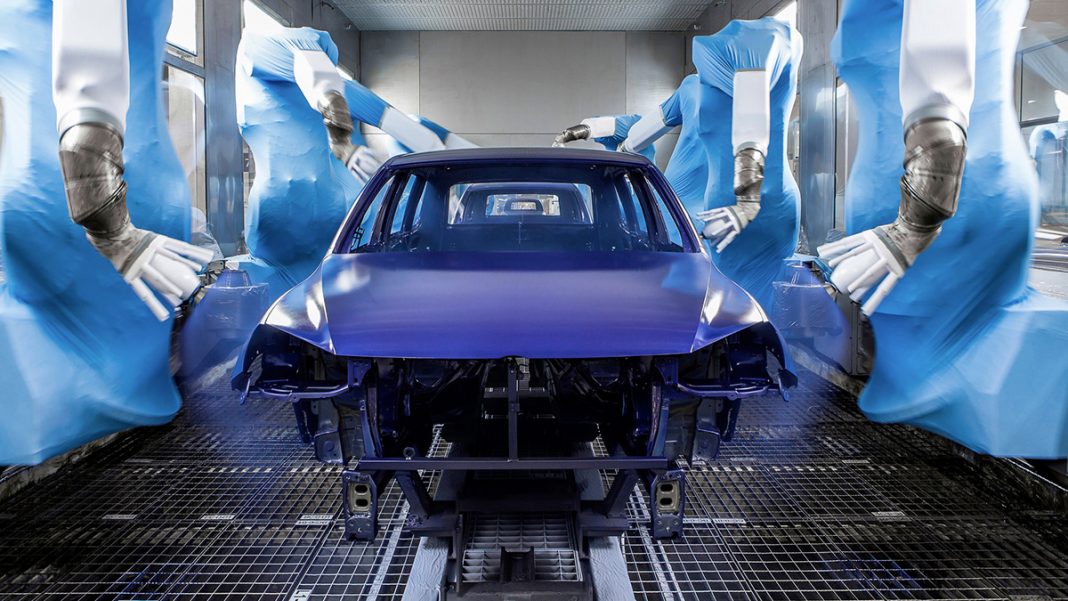2020 The Volkswagen Group has launched its own Carbon Fund. The CO2 fund, which is endowed with €25 million annually, is available to all twelve Group brands. They use it to finance their own climate protection projects at their locations worldwide.
The Carbon Fund was launched by the Group in February 2019. The funds are available for projects that save CO2, improve energy efficiency or otherwise save energy. In addition, it is aimed at accelerating innovation, strengthening new and existing business models.
For a project to receive support from the 25-million-Euro fund there is an essential factor: It should be scalable and transferable to many of the Group’s sites.
Here are a few examples:
- “LED Lighting” project: In nine of the Group’s production sites, a total of 33 measures were implemented to switch the lighting of the plant to energy-saving LEDs in certain areas. CO2 reduction: 116,000 metric tons annually.
- “Refrigeration supply” project: In Kassel, existing refrigeration units were and are being replaced by so-called separation circuit systems. To date, over 150 refrigeration units have been replaced. The new separation circuits serve to cool the machines and spindles and considerably reduce energy consumption compared to the previous refrigeration units. In addition, the heat input into the cooling water network is reduced by 23 percent, maintenance and service intervals are longer and less costly. In addition, it has been possible to ensure that in future all new plants will be equipped with separation circuit systems from the outset. In 2019, 13 systems were retrofitted. Total CO2 reduction: 1,350 metric tons annually.
- “Various Infrastructure” project: In this project, new energy efficient pumps with a so-called pump curve optimization were installed. At the same time, building roofs were renovated and a new cabinet cooling system was installed. The project started on July 1 and was completed on December 31, 2019. CO2 reduction: 2,000 tons annually.
- “Paint shop and dryer” project: Volkswagen installed a load-dependent volume flow control system at the Hanover plant. The technology has been tested and can be extended to other sites in the next few years. The load-dependent control system saves around 1,200 tons of CO2 annually. In addition, further measures were implemented in this project, which will have saved a total of 1,800 tons of CO2 by the end of the year.CO2 reduction: 3,000 metric tons annually.
- “Washing Processes” project: Industrial washing machines were optimized at several Group locations. A total of around 30 systems were technically retrofitted with so-called frequency converters. In addition, operating parameters such as pressure and volume flow, temperatures and standby times were optimally adjusted. The project started on July 1 and was completed by the end of the year. CO2 reduction: 2,900 metric tons annually.
- Project “Other production processes”: Modern temperature regulation technology was installed on three die casting machines. In the die casting process it is important to heat or cool the right areas of the die at the right time. For this purpose, up to 40 heating/cooling circuits run in the moulds. By means of flow and temperature sensors, the new
technology can distribute the heat flow so intelligently that enormous energy savings are achieved through internal heat recovery. The project was implemented in the second half of 2019 and was completed by the end of the year. CO2 reduction: 2,500 metric tons annually.
In the future he Carbon Fund project will be repeated year after year. For 2020, more than 100 new projects have been decided so far.





























